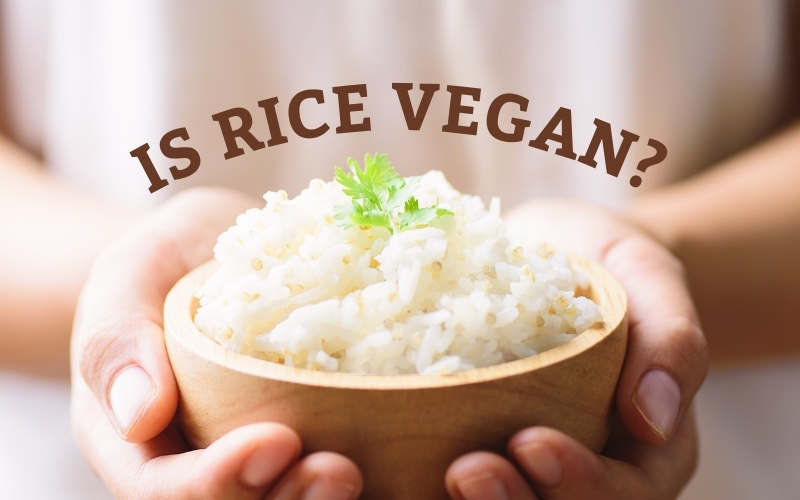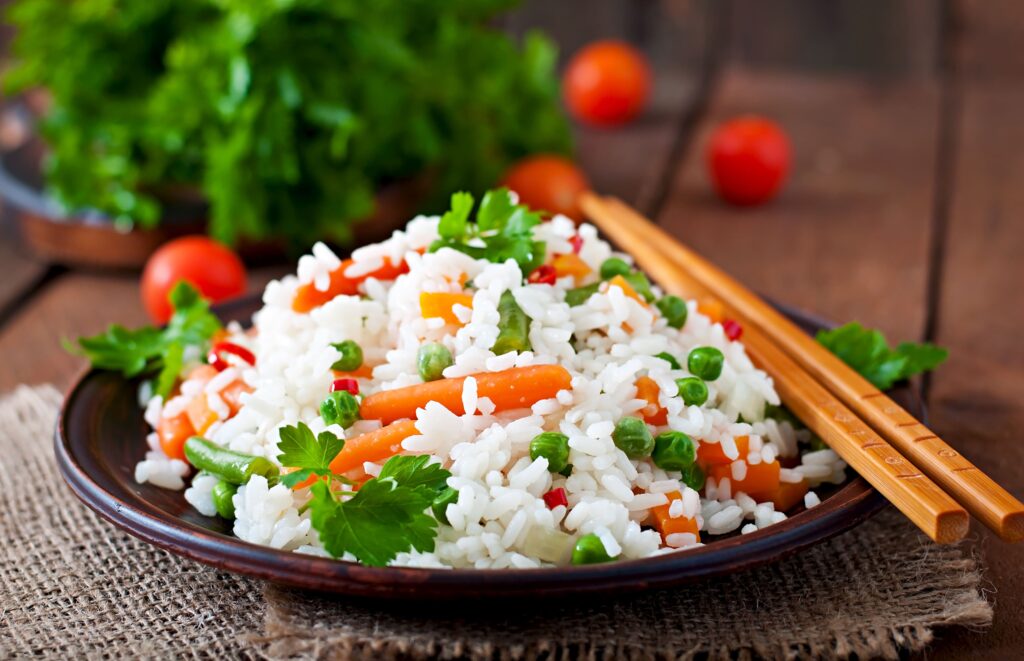Egg Bhurji
Introduction Egg Bhurji, a dish that's both simple and incredibly delicious, holds a special place in many households. This Indian-style…
Hey there, fellow food enthusiasts and veggie lovers! Today, we’re diving into the delightful world of vegan cuisine to answer a burning question: Can vegans eat rice? It’s a topic that’s often surrounded by misconceptions, so let’s clear the air and explore the wonderful relationship between rice and the vegan diet.
Veganism has gained immense popularity in recent years, with more individuals embracing a plant-based lifestyle for ethical, environmental, and health reasons. As people explore the nuances of a vegan diet, questions arise about the suitability of certain foods. One common query is, “Can vegans eat rice?” Let’s delve into the details to understand the relationship between veganism and this staple grain.

Now, let’s get to the heart of the matter – is rice vegan-friendly? The answer is a resounding yes! Rice is a staple in many traditional vegan diets around the world. Whether it’s white rice, brown rice, jasmine rice, or basmati rice, this grain is entirely plant-based and doesn’t contain any animal-derived ingredients. It’s a pure, natural product that perfectly aligns with vegan principles.
When we talk about the origin and processing of rice, we find that it’s inherently vegan. Rice comes from the paddy fields, where it’s cultivated and harvested without any animal involvement. The milling and processing of rice also do not involve any animal by-products, making it a clean and green choice for vegans.
Additionally, rice is a nutritional powerhouse for vegans. It’s rich in carbohydrates, providing a sustainable source of energy, and contains essential vitamins and minerals such as manganese, magnesium, and B vitamins. This makes it a valuable addition to a well-rounded vegan diet, supporting overall health and vitality.
Also Check :- 7 Ways to Take the Stress Out of Going Vegan
A well-rounded vegan diet includes a variety of plant-based foods. Fruits, vegetables, legumes, nuts, and seeds form the foundation of this lifestyle.
Grains play a crucial role in a vegan diet, providing essential carbohydrates, fiber, and various nutrients. Among the plethora of grains, rice stands out as a dietary staple for many.

Overall, rice is a fantastic addition to a vegan diet. Its versatility, health benefits, and affordability make it a valuable staple food. By being mindful of preparation and sourcing, vegans can enjoy rice as a delicious and nutritious part of their meals.
Also Check :- Best Vegan Food for Children
Rice is not just a source of carbohydrates; it offers a range of nutrients. Brown rice, for example, is rich in fiber, vitamins, and minerals.
White, brown, and wild rice are popular choices. Each type has its unique nutritional profile, allowing for versatility in meal planning.
Contrary to misconceptions, rice can be a valuable energy source for vegan athletes. Many successful athletes thrive on a plant-based diet, with rice as a significant component.
Considering the environmental impact of food choices, it’s essential to explore sustainable rice farming practices and make eco-friendly choices.
Dispelling common misconceptions about veganism and rice emphasizes the flexibility and richness of a plant-based diet.
In conclusion, rice is indeed a vegan-friendly food that can be a valuable part of a plant-based diet. Understanding its nutritional value, exploring alternatives, and debunking myths contribute to making informed choices as a vegan.
Can rice be considered a complete protein for vegans?
How can vegans ensure they get enough nutrients from rice?
Are there any health risks associated with excessive rice consumption?
Can rice be part of a weight-loss vegan diet?
What are some creative ways to include rice in a vegan meal?
Introduction Egg Bhurji, a dish that's both simple and incredibly delicious, holds a special place in many households. This Indian-style…


Sign in to your account